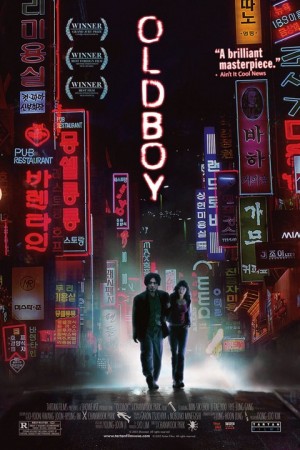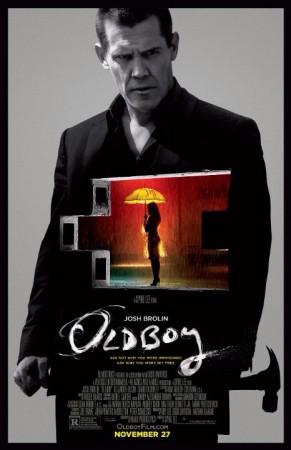One thing I try to do at MFM is to ask questions that make people think. I don’t try to present the unpopular perspective, but, when I have one, I don’t shy away from sharing it.
One of the worst things for filmmakers who do direct “name” remakes is the romantic attachments that film reviewers so often have to the source material. (I say name remakes because some remakes change the name and distance themselves from the source material, like The Departed which was remade from the Japanese film, Infernal Affairs.) It can be worse than book lovers attachments’ to the source book.
This came to mind when I had the opportunity to sit down and watch both 2003’s Korean film, Old Boy, by Chan-Wook Park and 2013’s American remake of the same name by Spike Lee. As I hadn’t seen the original Old Boy, I decided to check them both out at the same time. I’d heard wonderful things about the original, but really disappointing reviews about the remake, which was done by Spike Lee. (Rotten Tomatoes gave an 80% score–meaning 8 out of 10 critics recommended the film–to the 2004 film while the 2013 film received a 42%!)
You can imagine my surprise when after watching both films, I found that the remake actually was at least as good as the first film and, honestly, had a superior ending. (Both endings work, but the Spike Lee ending felt more authentic to the character in the movie.)
This led me to wonder about why reviews should’ve been so much lower, rather than as good, or even better, for the new film.
There’s no question we have an emotional attachment to a film and what it made us feel at that time. As time passes, we remember it fondly and associate some new learning to that film’s train if thought.
I surmise that, when a remake is on the horizon, many of us as critics hold that new one up to a romanticized standard that is created by how that film was capable of making us feel at the time we watched it, compounded by how much we’ve regarded it over the passage of time. (Truthfully, I suspect that if–when–they remake Fight Club, I’ll have a similar difficulty judging the new work on its own merit because so much of my emotional development was in flux when I watched it originally and I’ve quoted it for over 15 years.)
By watching both Old Boy films back to back, I had no time to over-inflate my opinion of the first film and was more quick to note strengths and weaknesses in each. I believe that my assessment of the second as superior is therefore more valid because of this–and likewise, more logical than reviewers who has time in between seeing each film.
However, my awareness of the nuances in these two films was heightened tremendously because I watched two completely different perspectives on the same basic story. As such, undoubtedly, I got more out of the films as a pair than I would’ve gotten out of either film on its own.
Some could say that disproves my assessment, as it gives me an “inside” look at the story because both are delivered to me almost immediately. I would say it has no more effect than someone reading the novel of the Hunger Games and then, immediately after, watching the film; with each casting a different light on the core story.
What do you think? Does the tendency for reviewers to dismiss remakes occur because the remakes tend to be weaker or because they’re judged by standards the originals could no longer achieve? Or does the existence of both make a critic whose seen them unable to judge either?
Film is subjective, so if you want to check out both versions of Old Boy and leave your own opinions below, I’d welcome it. You can can currently check them both at Netflix streaming.


